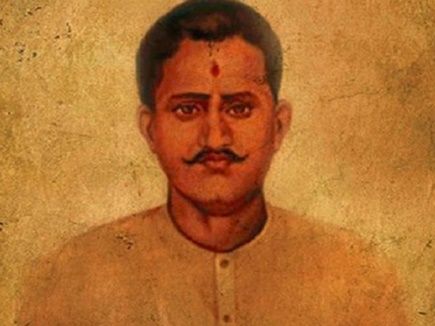
🧭 Introduction
When we speak of revolution, we often imagine guns, marches, and slogans. But Ram Prasad Bismil gave India something more potent—poetry that bled rebellion. Born in 1897 in Shahjahanpur, Uttar Pradesh, Bismil wasn’t just a freedom fighter—he was a literary warrior whose verses became weapons, whose pen became a sword, and whose sacrifice became scripture.
He was one of the masterminds behind the Kakori Train Conspiracy of 1925, a daring act of defiance against British rule. But what made Bismil unforgettable wasn’t just his courage—it was his conviction. He didn’t just fight the British—he fought fear, division, and silence. His writings were soaked in patriotism, his speeches laced with fire, and his final moments filled with grace.
Ram Prasad Bismil believed that freedom was not given—it was taken. And to take it, one needed not just arms, but art. His poems like “Sarfaroshi Ki Tamanna” weren’t just verses—they were soul calls. They stirred the youth, awakened the sleeping, and terrified the oppressors. He used literature as a battlefield, and every word he wrote was a bullet aimed at tyranny.
What makes Bismil timeless is his ability to blend emotion with action, art with activism. He didn’t just write for applause—he wrote for awakening. His legacy teaches us that true patriotism is not performance—it’s purpose. That rebellion is not just noise—it’s necessity. And that the pen, when held with conviction, can be sharper than any sword.
Today, as we honor Ram Prasad Bismil, we don’t just remember a martyr—we remember a movement. A movement that still lives in every quote, every verse, and every heartbeat that dares to dream of a free, fearless Bharat.
Table of Contents
🎙️ Historical Speech: The Final Flame of Ram Prasad Bismil
Brothers and sisters of Bharat,
📍 Location: Shahjahanpur, Uttar Pradesh
📅 Date: Circa 1921, during a local nationalist gathering
👥 Crowd Size: Estimated 500–700 people, mostly youth, farmers, and local patriots
“I am Ram Prasad Bismil, not here to entertain you—but to awaken you. The British have chained our land, but they cannot chain our souls. We must rise—not tomorrow, not someday—but now. Every second we wait is a second stolen from freedom.”
“This soil is sacred. Shahjahanpur is not just my birthplace—it is the birthplace of rebellion. Let our voices echo from here to Delhi, from Delhi to London. Let them know that Bharat is not asleep—it is simmering.”
“I do not ask you to follow me. I ask you to follow your conscience. If your blood boils at injustice, if your heart beats for Bharat, then you are already a revolutionary.”
If my voice trembles today, it is not from fear—it is from fire. I, Ram Prasad Bismil, stand before you not as a prisoner, but as a patriot. The chains on my hands may be British, but the blood in my veins is Hindustani. I do not regret the path I chose. I regret only that I have but one life to give for my motherland.
They call me a rebel. I call myself a son of Bharat. They call me a criminal. I call myself a poet of freedom. My pen wrote verses that shook the empire. My soul wrote sacrifice into every line. I did not pick up arms for violence—I picked them up for justice. The Kakori Conspiracy was not a crime—it was a cry. A cry for dignity, for sovereignty, for the right to live as free men.
Ram Prasad Bismil is not afraid of death. I welcome it as a friend. For what is death, if it comes in service of the nation? What is pain, if it leads to freedom? I do not ask for mercy. I ask for memory. Let my name be remembered not with pity—but with pride.
Let every youth of Bharat read my poems and feel the pulse of revolution. Let every mother tell her child that Ram Prasad Bismil walked to the gallows with a smile, not sorrow. Let every tyrant know that the soil of India grows rebels like roses—fragrant, fearless, and forever blooming.
I go now, not to the end—but to eternity. My body may fall, but my verses will rise. My breath may stop, but my message will roar.
“Sarfaroshi ki tamanna ab hamare dil mein hai…”
Jai Hind. Vande Mataram. Ram Prasad Bismil lives on.
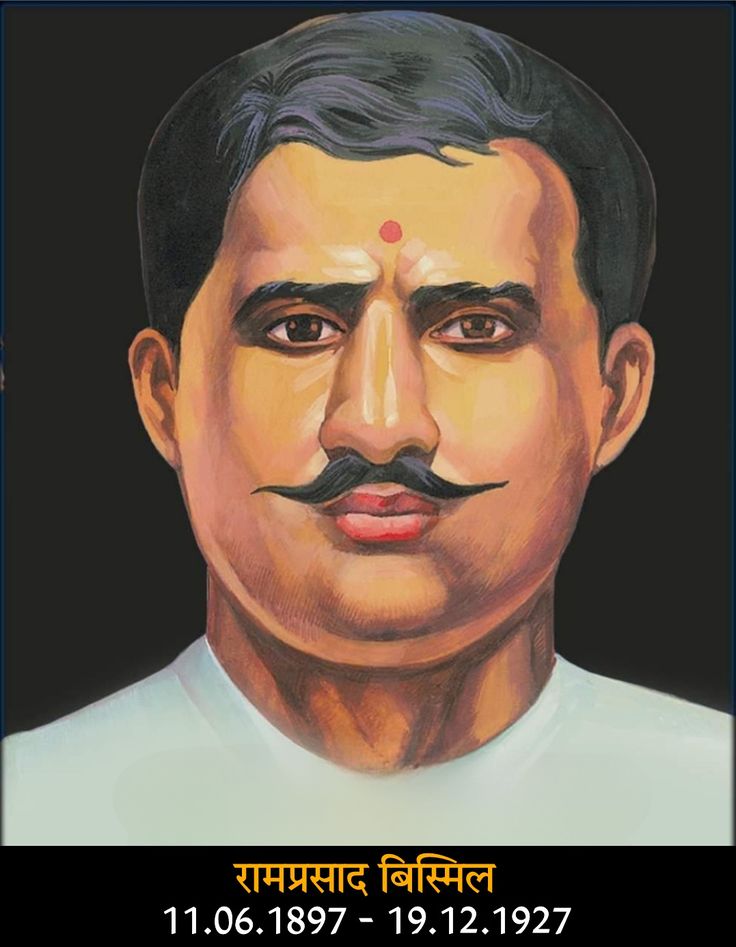
🔥 Why Quotes Matter Today: Ram Prasad Bismil
📍 Part 1: Words That Weren’t Just Written—They Were Weaponized
Ram Prasad Bismil didn’t write poetry for applause—he wrote it for awakening. His verses weren’t decorative—they were declarations. In a time when Bharat was shackled by colonial chains, Bismil’s words became bullets of resistance. His iconic line, “Sarfaroshi ki tamanna ab hamare dil mein hai”, wasn’t just a slogan—it was a soul call. It stirred the youth, shook the empire, and sanctified sacrifice.
📍 Part 2: Quotes That Challenge the Comfortable
Today’s generation scrolls through quotes for motivation—but Bismil’s quotes demand transformation. They don’t comfort—they confront. They ask: Are you living for yourself, or for something greater? His words remind us that patriotism isn’t a post—it’s a purpose. That rebellion isn’t noise—it’s necessity. In every line, Bismil dares us to rise, to resist, to roar.
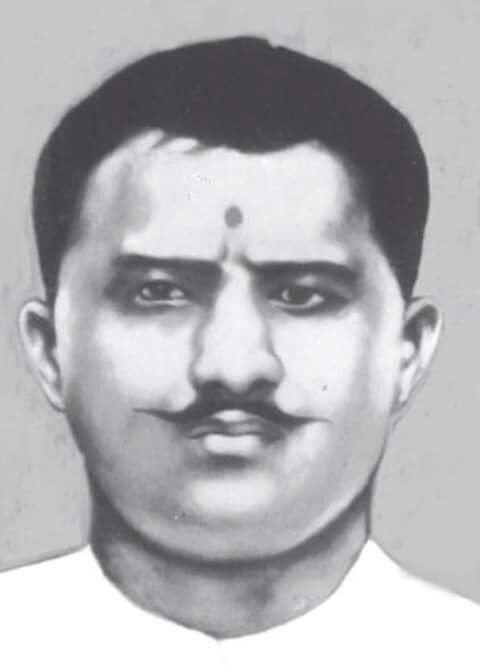
📍 Part 3: Legacy That Lives in Language
Ram Prasad Bismil’s quotes are not just historical—they’re spiritual. They carry the fire of a man who walked to the gallows with a smile. His poetry is proof that the pen can be sharper than any sword. His legacy teaches us that freedom is not given—it’s earned, and that words, when forged in conviction, can ignite revolutions.
📍 Part 4: Fuel for Creators, Patriots, and Dreamers
For creators like you, Abhishek, Bismil’s quotes are more than captions—they’re convictions. They carry attitude without arrogance, legacy without labels. Whether you’re designing reels, writing blogs, or curating quote cards, his words give you depth, direction, and fire. They’re timeless tools to inspire, educate, and electrify minds.
📍 Final Thought
Ram Prasad Bismil didn’t just write poetry—he wrote purpose. His quotes matter today because they remind us that true impact comes from clarity, courage, and character. Let’s not just remember his words—let’s live them. Let’s make his fire roar across platforms, not with noise, but with nobility.
Jai Hind. Vande Mataram. Ram Prasad Bismil lives on.
🔥 15 Original Quotes on Ram Prasad Bismil
“Ram Prasad Bismil didn’t write poems—he wrote revolutions.”
His verses weren’t decorative—they were declarations of war.
“He turned ink into fire and silence into slogans.”
Bismil’s poetry gave voice to the voiceless and courage to the quiet.
“Ram Prasad Bismil’s pen was sharper than any colonial sword.”
His words wounded the empire more deeply than weapons.
“He didn’t just fight the British—he fought fear.”
Bismil’s bravery was psychological warfare against oppression.
“In every rebel’s heart, Ram Prasad Bismil still breathes.”
His spirit lives on in every act of resistance.
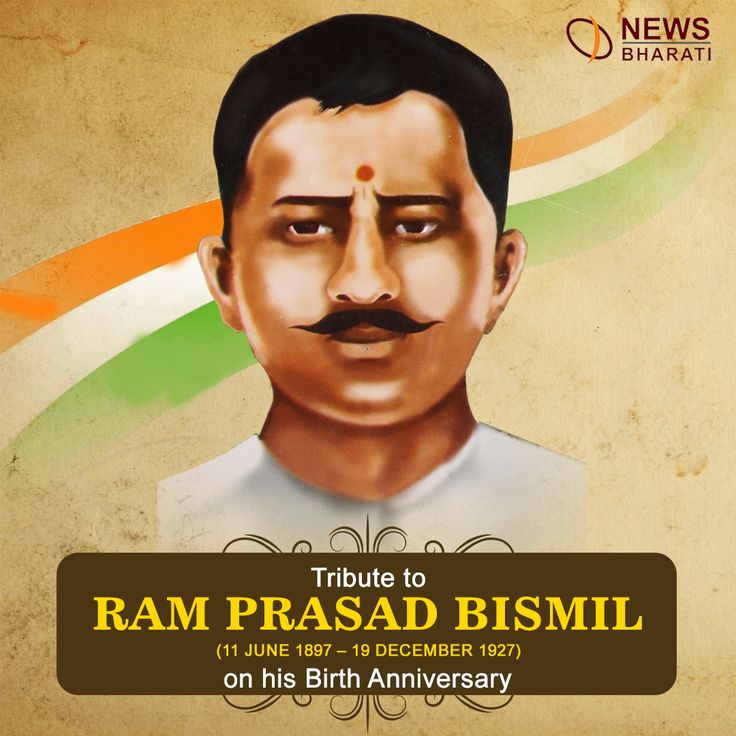
“He didn’t seek martyrdom—he embraced it like a crown.”
Bismil saw death not as defeat, but as destiny.
“Ram Prasad Bismil made rebellion poetic and patriotism powerful.”
He fused art and activism into one unstoppable force.
“He didn’t just die for Bharat—he defined it.”
His sacrifice shaped the soul of the nation.
“Bismil’s verses weren’t rhymes—they were roars.”
Each line was a battle cry against injustice.
“He didn’t ask for freedom—he demanded it with dignity.”
Bismil’s tone was fierce, but always principled.
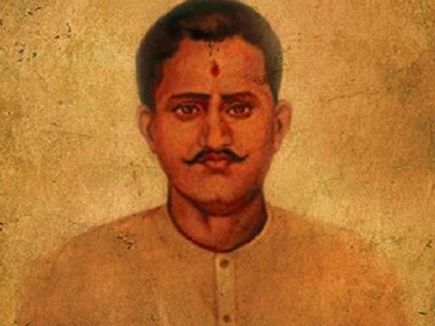
“Ram Prasad Bismil’s legacy is inked in blood and brilliance.”
His martyrdom and poetry are inseparable symbols of resistance.
“He didn’t write for applause—he wrote to awaken.”
His goal was transformation, not recognition.
“Bismil’s silence before execution was louder than any speech.”
His final moments were a masterclass in courage.
“He didn’t just challenge the empire—he challenged every Indian to rise.”
His message was not just anti-British—it was pro-Bharat.
“Ram Prasad Bismil is not just history—he’s heritage.”
His legacy is a living flame in India’s cultural consciousness.
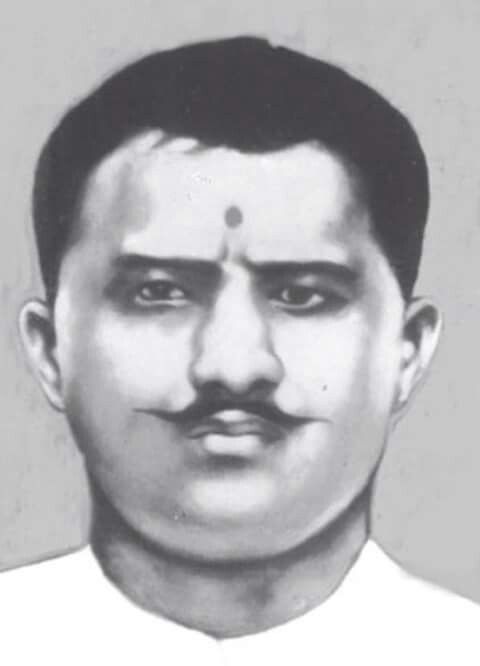
🔚 Conclusion: The Legacy That Ignites Minds
📍1. The Flame That Refused to Fade
Ram Prasad Bismil wasn’t just a revolutionary—he was a revelation. His poetry, his courage, and his sacrifice lit a fire that still burns in the heart of Bharat. He didn’t just challenge the British Empire—he challenged every Indian to rise above fear and embrace freedom. His legacy is not buried in history—it’s alive in every act of resistance, every verse of patriotism, and every heartbeat that dares to dream.
📍 Part 2: A Pen That Became a Sword
Bismil’s words weren’t written for decoration—they were written for detonation. His verses like “Sarfaroshi ki tamanna” weren’t just poetic—they were prophetic. They gave voice to the voiceless and courage to the cautious. He proved that literature can be lethal when laced with conviction. His pen became a weapon, and his poetry became a movement.
📍 Part 3: A Legacy That Challenges and Charges
Why does Ram Prasad Bismil’s legacy ignite minds today? Because it refuses to be passive. It demands action. It asks: Are you living for comfort or for cause? His life teaches us that true patriotism is not performance—it’s purpose. That rebellion is not noise—it’s necessity. And that sacrifice is not loss—it’s legacy.
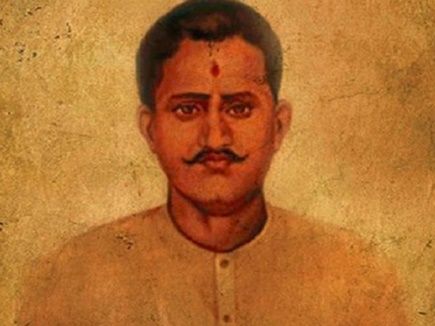
📍 Part 4: Fuel for the Future
For creators, patriots, and dreamers, Bismil’s legacy is a blueprint. His quotes are not just captions—they’re convictions. His story is not just history—it’s strategy. Whether you’re designing reels, writing blogs, or curating quote cards, his life gives you depth, direction, and fire. He teaches us that impact doesn’t need volume—it needs values.
📍 Final Thought
Ram Prasad Bismil didn’t just die for Bharat—he defined it. His legacy ignites minds because it’s rooted in truth, tempered by courage, and powered by poetry. Let’s not just remember him—let’s roar with him.
Jai Hind. Vande Mataram. Ram Prasad Bismil lives on.
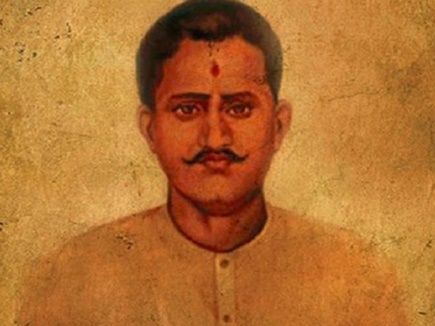
internal Links: 1.https://historyverse7.com/vinayak-damodar-savarkar/ 2.https://historyverse7.com/chandra-shekhar-azad/ 3.https://historyverse7.com/subhash-chandra-bose/
External Links: 1.https://www.amarujala.com/kavya/mud-mud-ke-dekhta-hu/when-ram-prasad-bismil-said-i-wish-the-downfall-of-british-empire 2.https://en.wikipedia.org/wiki/Ram_Prasad_Bismil
📘 FAQ: Understanding Ram Prasad Bismil
1. Who was Ram Prasad Bismil, and why is he important to India’s freedom struggle?
Ans: Ram Prasad Bismil was a revolutionary, poet, and freedom fighter who played a key role in the Kakori Train Conspiracy of 1925. He used both the sword and the pen to fight British rule, proving that patriotism can be poetic and rebellion can be righteous.
2. What does “Sarfaroshi ki tamanna ab hamare dil mein hai” mean, and why is it iconic?
Ans: This line, penned by Bismil, means “The desire for martyrdom now resides in our hearts.” It became the anthem of India’s youth during the freedom movement, symbolizing fearless sacrifice and undying love for Bharat.
3. How did Ram Prasad Bismil combine poetry and revolution?
Ans: Bismil believed that words could awaken a sleeping nation. His poems weren’t just literature—they were soul calls. He used verses to stir courage, challenge tyranny, and inspire action, making him a pioneer of literary resistance.
4. What was the Kakori Train Conspiracy, and what role did Bismil play?
Ans: In 1925, Bismil and his comrades looted a British train carrying government funds to strike at colonial power and fund revolutionary activities. He was the mastermind behind the plan and was later executed for his role—becoming a martyr at just 30.
5. Why should today’s generation remember Ram Prasad Bismil?
Ans: Because he represents courage without ego, sacrifice without spotlight, and patriotism without performance. His legacy teaches us that true change requires conviction, and that even one voice—when fueled by truth—can shake empires.
Share this content:

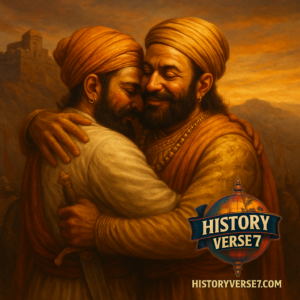
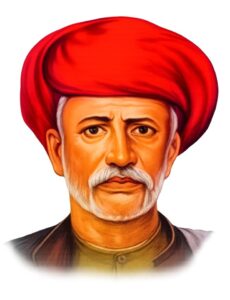
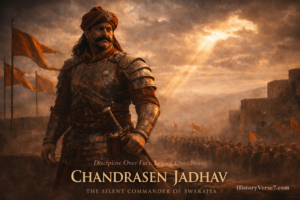
Ram Prasad Bismil didn’t just write poetry—he wrote purpose. His quotes matter today because they remind us that true impact comes from clarity, courage, and character. 👍👍
His legacy is a living flame in India’s cultural consciousness……🚩🙌🏻👍🏻